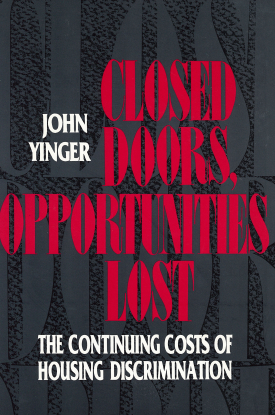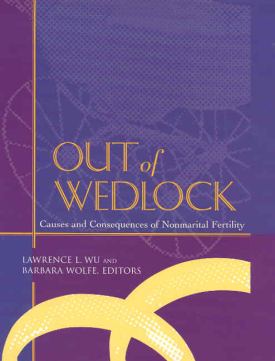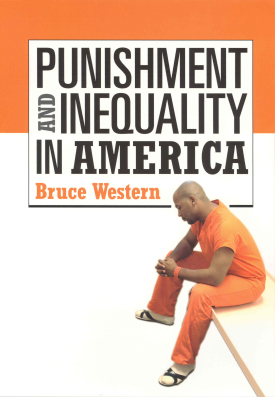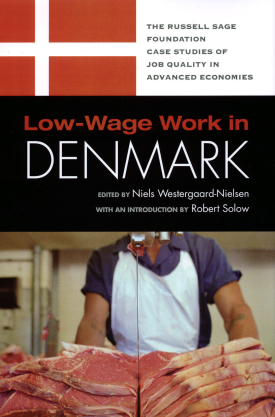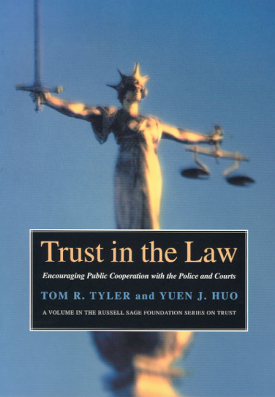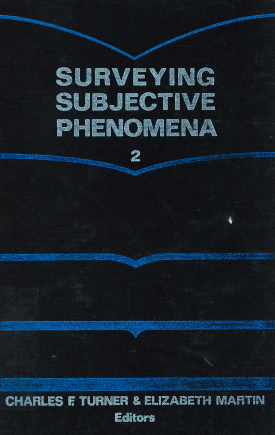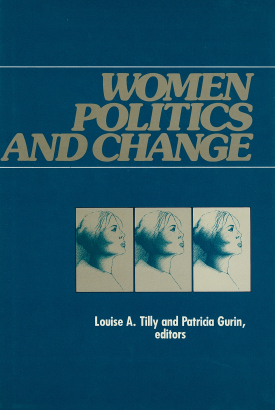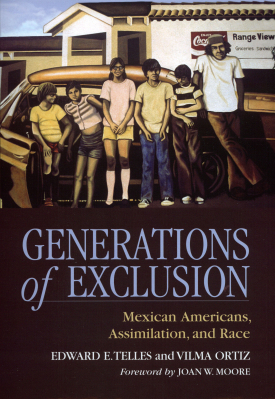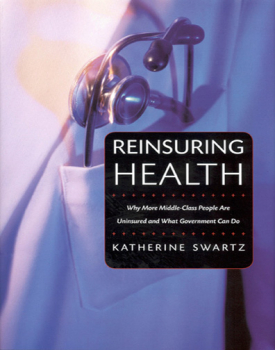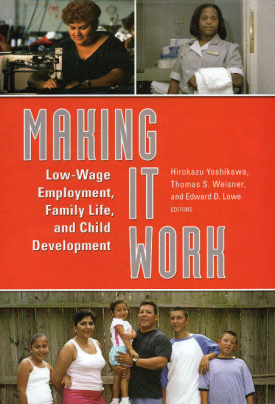
Making It Work
About This Book
Low-skilled women in the 1990s took widely different paths in trying to support their children. Some held good jobs with growth potential, some cycled in and out of low-paying jobs, some worked part time, and others stayed out of the labor force entirely. Scholars have closely analyzed the economic consequences of these varied trajectories, but little research has focused on the consequences of a mother’s career path on her children’s development. Making It Work, edited by Hirokazu Yoshikawa, Thomas Weisner, and Edward Lowe, looks past the economic statistics to illustrate how different employment trajectories affect the social and emotional lives of poor women and their children.
Making It Work examines Milwaukee’s New Hope program, an experiment testing the effectiveness of an anti-poverty initiative that provided health and child care subsidies, wage supplements, and other services to full-time low-wage workers. Employing parent surveys, teacher reports, child assessment measures, ethnographic studies, and state administrative records, Making It Work provides a detailed picture of how a mother’s work trajectory affects her, her family, and her children’s school performance, social behavior, and expectations for the future. Rashmita Mistry and Edward D. Lowe find that increases in a mother’s income were linked to higher school performance in her children. Without large financial worries, mothers gained extra confidence in their ability to parent, which translated into better test scores and higher teacher appraisals for their children. JoAnn Hsueh finds that the children of women with erratic work schedules and non-standard hours—conditions endemic to the low-skilled labor market—exhibited higher levels of anxiety and depression. Conversely, Noemi Enchautegui-de-Jesus, Hirokazu Yoshikawa, and Vonnie McLoyd discover that better job quality predicted lower levels of acting-out and withdrawal among children. Perhaps most surprisingly, Anna Gassman-Pines, Hirokazu Yoshikawa, and Sandra Nay note that as wages for these workers rose, so did their marriage rates, suggesting that those worried about family values should also be concerned with alleviating poverty in America.
It is too simplistic to say that parental work is either “good” or “bad” for children. Making It Work gives a nuanced view of how job quality, flexibility, and wages are of the utmost importance for the well-being of low-income parents and children.
HIROKAZU YOSHIKAWA is professor of education at the Harvard Graduate School of Education.
THOMAS S. WEISNER is professor of anthropology in the Semel Institute of the Department of Psychiatry, and in the Department of Anthropology at the University of California, Los Angeles.
EDWARD D. LOWE is associate professor of Anthropology at Soka University of America.
CONTRIBUTORS: Johannes M. Bos, Faye Carter, Noemi Enchautegui-de-Jesus, Anna Gassman-Pines, Erin P. Godfrey. Eboni C. Howard, JoAnn Hsueh, Vonnie C. McLoyd, Rashmita S. Mistry, Sandra Nay, Valentina Nikuklina, Amanda L. Roy.

